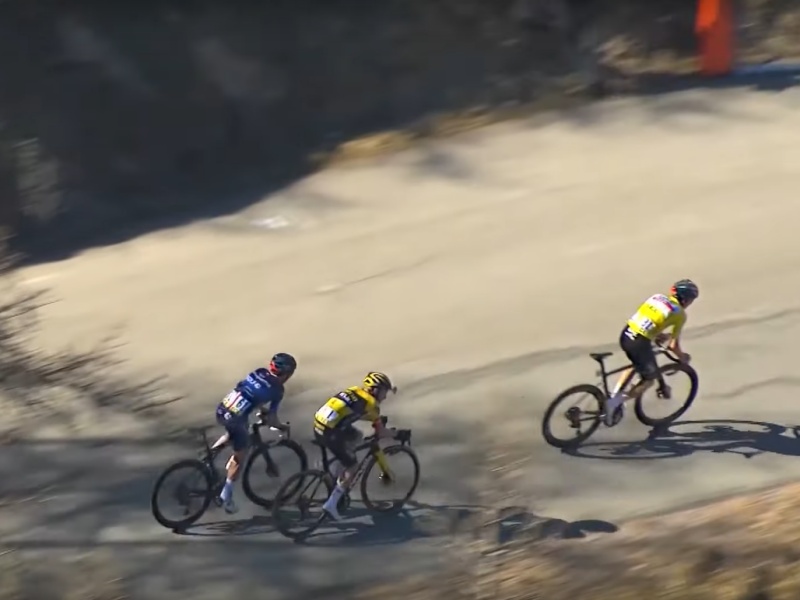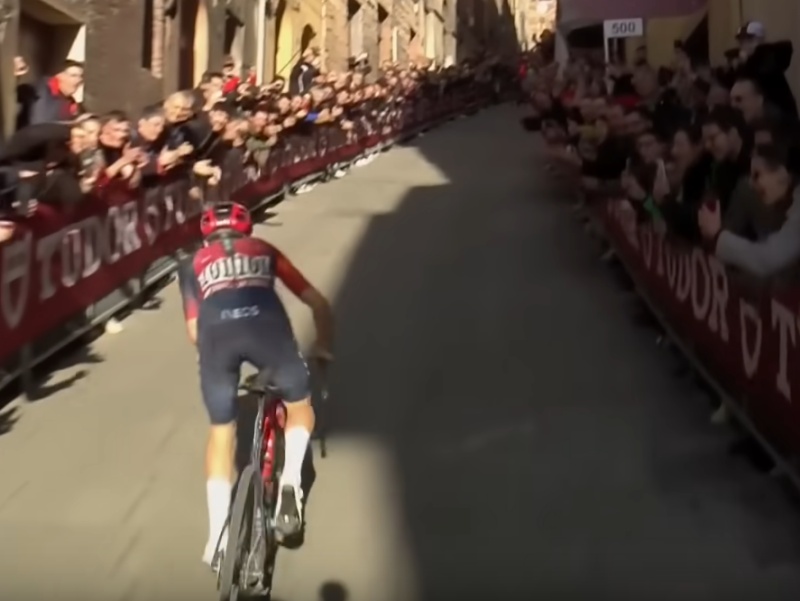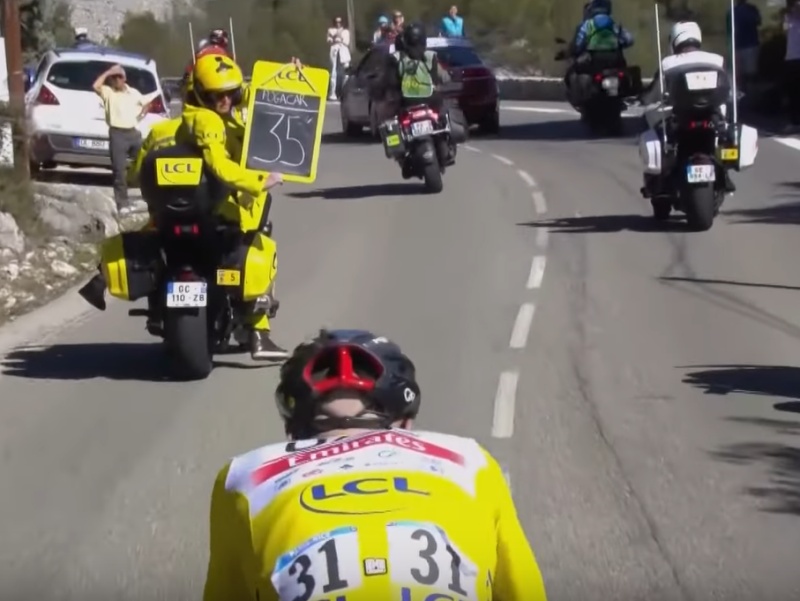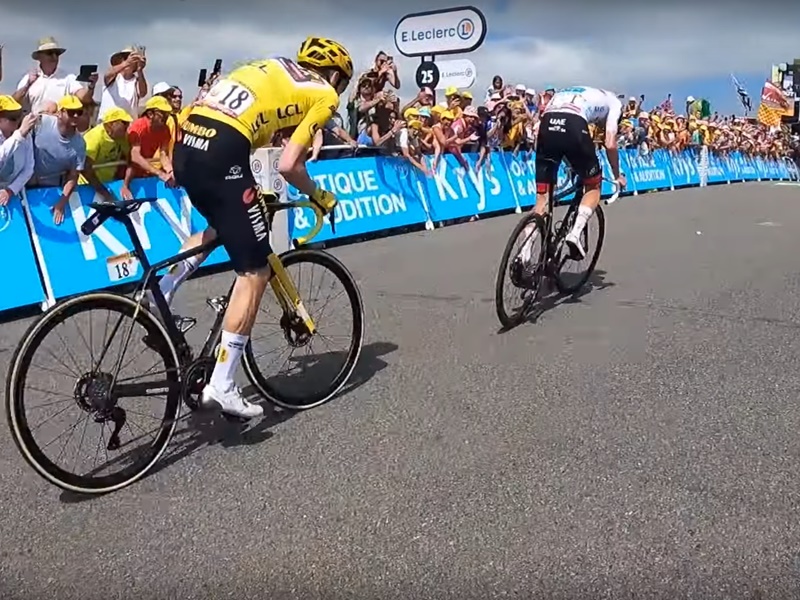
Spring is (sort of) here. Tadej Pogacar is winning bike races. Gauntlets are being thrown down. Where are we with everything? Shall we try and take stock?
The WorldTour (the UCI still hasn’t found its space bar) officially began in January with the Tour Down Under, but road cycling’s deep-rooted eurocentrism means it never really feels like its underway until we’ve had the first big week of the season.
Early each March, two of the most highly regarded stage races of the season overlap. Paris-Nice is the north-to-south French one. Tirreno-Adriatico is the west-to-east Italian one.
If you understand this week, you’re a long way towards understanding the rules and rhythms that underpin the whole road racing calendar.
A clash?
The fact that Paris-Nice and Tirreno-Adriatico overlap is sort of dumb. However, it also means that most top level riders in the world are aiming to be in great form at the same time. This gives the season an early focal point.
The reasons for riders wanting to be in form in early March vary quite a bit. A lot of it’s down to the looming Spring Classics.

Strade Bianche has already been and gone. This year it was won by Olympic cross-country mountain bike gold medallist and daredevil descender, Tom Pidcock. Milan-Sanremo, the first Monument of the season, is on Saturday, and then everything starts getting all cobbled and Belgian.
So all of the riders targeting those races are somewhere near peak fitness. They use the two big March stage races to help get them there and that means they’re raced at a high level. The respective race organisers are important too. Tirreno-Adriatico has a lot of similarities with the Giro d’Italia, while Paris-Nice has a lot in common with the Tour de France.
So because they’re really handy prep for so many other things, the resultant level of racing means these two stage races are very much worth winning in their own right. In fact it’s entirely possible that they’re worth more than several of the races for which they’re being used as preparation. Bike racing, hey?
The winners
It feels like we’ve had more than the standard drip-feed of new big names over the last two or three years. Unless careers shorten, that influx has to come with a compensatory period of familiarity and that’s kind of what we’ve had so far in 2023.
Primoz Roglic, the most consistently successful stage racer of recent years, is looking to win the Giro d’Italia this year. He duly raced and won Tirreno-Adriatico, taking no fewer than three of the seven stages along the way. Joao Almeida, who has previously finished fourth and sixth at the Giro, came second. 2020 Giro winner Tao Geoghegan Hart came third.
Over in France, it was the Tadej Pogacar show, as usual. The 2020 and 2021 Tour winner was up against 2022 winner Jonas Vingegaard among others, but it was pretty obvious his eventual 53s winning margin could have been significantly greater if expanding it had particularly interested him.

2023 Vuelta a Espana winner Remco Evenepoel is the man I haven’t yet mentioned. The Belgian hasn’t actually raced since the UAE Tour in February (which he won). He was instead busying himself logging the fastest Strava time up Mount Teide, the Tenerife volcano on which Tour contenders routinely test themselves on training camps (although it’s probably worth emphasising that they don’t necessarily record these efforts on Strava).
Evenepoel is looking to win the Giro this year.
The contenders
Winning Paris-Nice matters some years and not others. You only know which after the Tour.
This is another way of saying that there’s a certain revisionism at play. Meaning is largely assigned with the benefit of hindsight.
Bradley Wiggins won Paris-Nice before winning the Tour de France in 2012 and Egan Bernal did the same in 2019. However, things didn’t pan out like that for Marc Soler in 2018 or for Max Schachmann in 2020 or 2021.
Pogacar won’t win the Tour because he won Paris-Nice. If he wins both, it’ll more likely just be because he wins a frightening proportion of the races he enters.
And for all his dominance, there’s no saying that he will win both.

One of the reasons why the Tour de France transcends all other road races is because of the lack of qualifications. That’s a bit of a confusing thing to say about a race where the list of winners features so many asterisks you could be forgiven for thinking a cat’s stood on the keyboard, so let me clarify.
If other races are about identifying the best rider, the Tour de France is about determining who’s best when at their best.
Jonas Vingegaard has won basically nothing. A stage of the Tour of Poland in 2019. A stage of the UAE Tour in 2021. A prologue here, a team time trial there – there’s really surprisingly little reallty.
But Vingegaard has done what no-one else has done. He’s beaten Pogacar at the biggest race of all. Out of form, he’s a minor character; but at his peak, he’s a protagonist.
It won’t be until the Tour that we finally get to compare like with like.
Sign up for the Tour de France on TV email so that each article comes to you whenever there’s a new one (which, let’s be honest, hasn’t been often in recent times. Sorry about that).
Leave a Reply